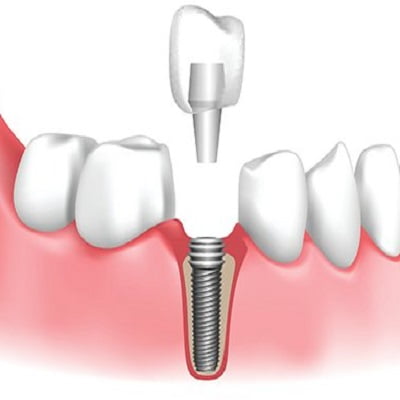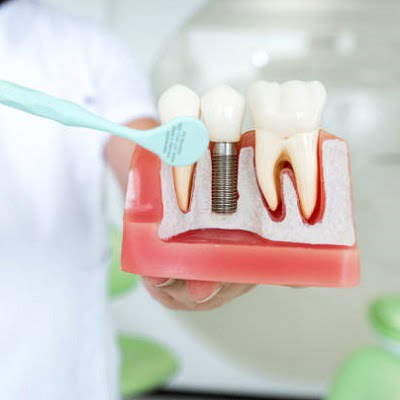
When it comes to tooth replacement options, dental implants in Islamabad have gained significant popularity in recent years. They are widely considered a perfect long-lasting solution for missing teeth, offering both aesthetic appeal and functionality. One question that often arises is whether dental implants are stronger than real teeth.
In this blog, we will explore the characteristics of dental implants and compare them to natural teeth to determine their relative strength. So, take a moment and read the following details!
Overview – Dental Implants:
Dental implants are artificial tooth roots made of biocompatible materials, typically titanium, which are surgically inserted into the jawbone. Over time, the implant fuses with the surrounding bone through a process called osseointegration. Once the implant is securely integrated, a prosthetic tooth, known as a dental crown, is attached to the implant.
Strength and Durability of Dental Implants:
Dental implants are known for their exceptional strength and durability. The titanium material used in their construction is highly resistant to corrosion and can withstand the daily forces exerted during chewing and biting. In fact, implants have been shown to have a success rate of over 95% in the long term.
The strength of dental implants can be attributed to the osseointegration process. As the implant fuses with the jawbone, it creates a stable foundation for the replacement tooth. This integration ensures that the implant is securely anchored and provides a biting force similar to that of natural teeth.
Comparing Dental Implants to Natural Teeth:
Natural teeth have a complex structure consisting of enamel, dentin, and pulp. Enamel, the outermost layer, is the hardest substance in the human body and protects the underlying dentin, which is slightly softer but still strong. The pulp, located at the centre of the tooth, contains blood vessels and nerves.
While dental implants may not possess the same biological complexity as natural teeth, their strength is comparable. Dental implants do not decay, as natural teeth can, and they are not susceptible to cavities. This resistance to decay contributes to their longevity and overall strength.
However, it is important to note that natural teeth have a degree of flexibility due to their connection to the periodontal ligament. This flexibility allows natural teeth to absorb some of the forces exerted during chewing, reducing the risk of fracture. Dental implants, being rigidly anchored in the jawbone, lack this flexibility. While they are highly durable, they may be subject to more direct forces during biting and chewing.
Factors Affecting Strength:
Several factors can influence the strength and durability of both natural teeth and dental implants. These include oral hygiene practices, overall health, lifestyle habits, and the quality of dental care received.
Proper oral hygiene, such as regular brushing, flossing, and dental check-ups, is crucial for maintaining the strength of natural teeth. Neglecting oral hygiene can lead to gum disease, tooth decay, and ultimately tooth loss. Similarly, dental implants require diligent oral care to prevent peri-implantitis, a condition that can compromise the implant’s stability.
Individual habits like teeth grinding (bruxism) and chewing on hard objects can also impact the strength of natural teeth and dental implants. These habits can cause excessive wear and tear, leading to cracks or fractures in natural teeth, and potential damage to dental restorations or implants.
The Bottom Line!
While dental implants may not possess the biological complexity of natural teeth, they are remarkably strong and durable. Their titanium construction and the process of osseointegration provide a stable foundation for replacement teeth, allowing them to withstand the forces of daily chewing and biting.
Natural teeth, on the other hand, have the advantage of flexibility due to their connection to the periodontal ligament, which helps absorb forces during chewing. However, the strength of natural teeth heavily depends on proper oral hygiene practices and lifestyle habits.
Ultimately, the decision between dental implants and natural teeth depends on individual circumstances and preferences. Consulting with a dental professional at SKN Cosmetic Clinic Islamabad can provide valuable guidance in determining the best tooth replacement option based on one’s specific needs and oral health condition.









